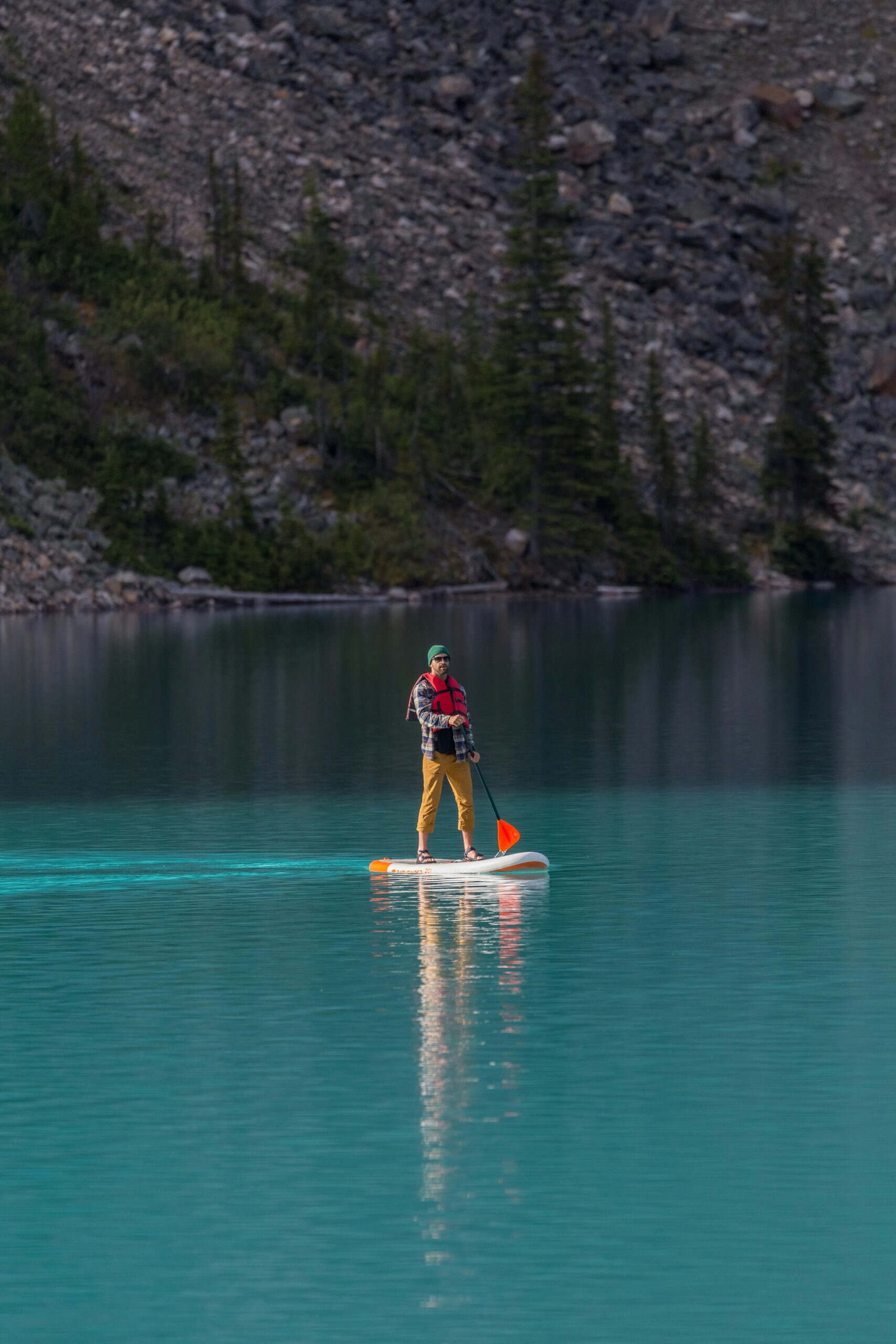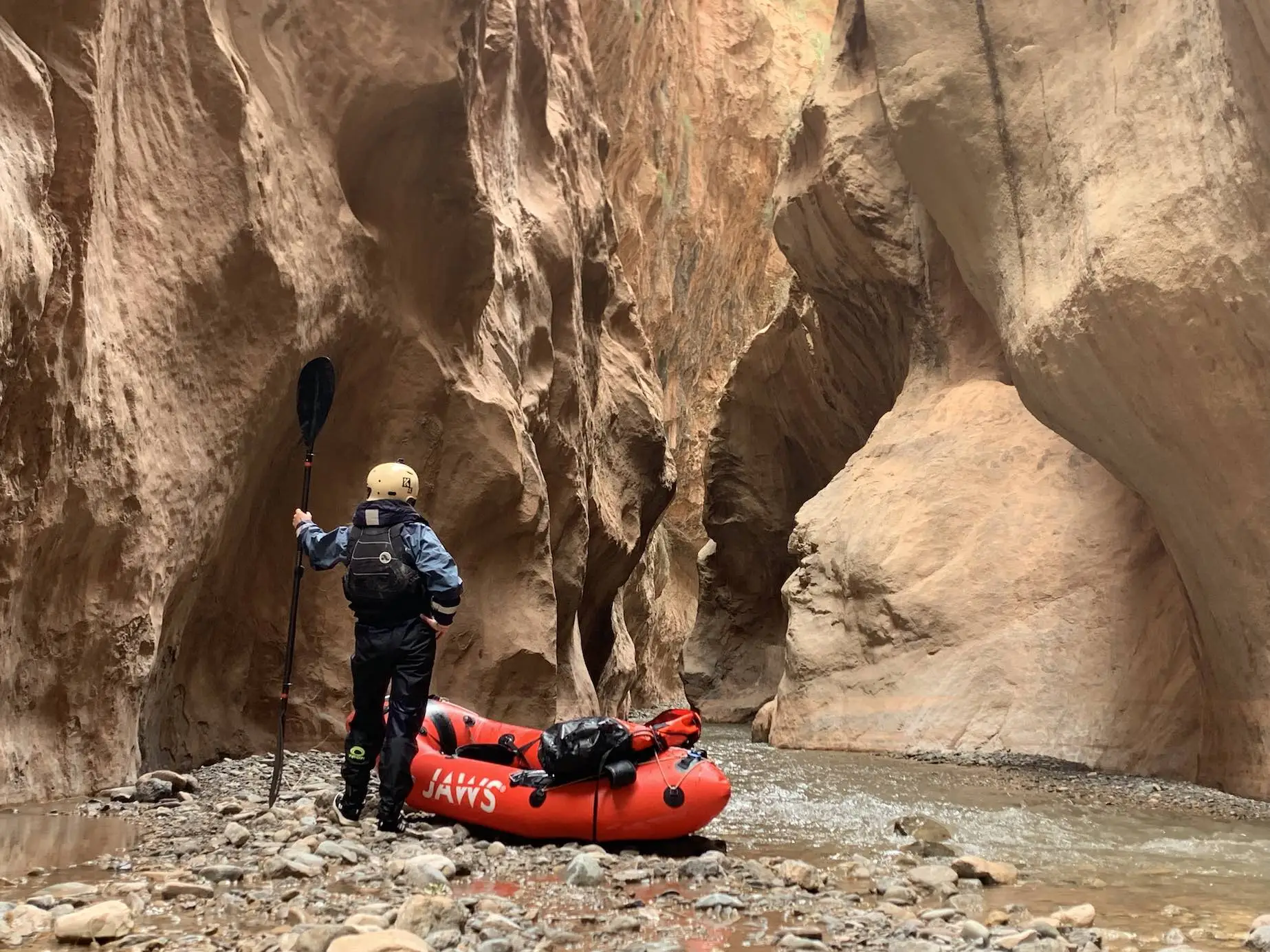Due to its weight and compactness, the packraft offers remarkable flexibility for combining different sports activities, thus paving the way for multifaceted and unique adventures.
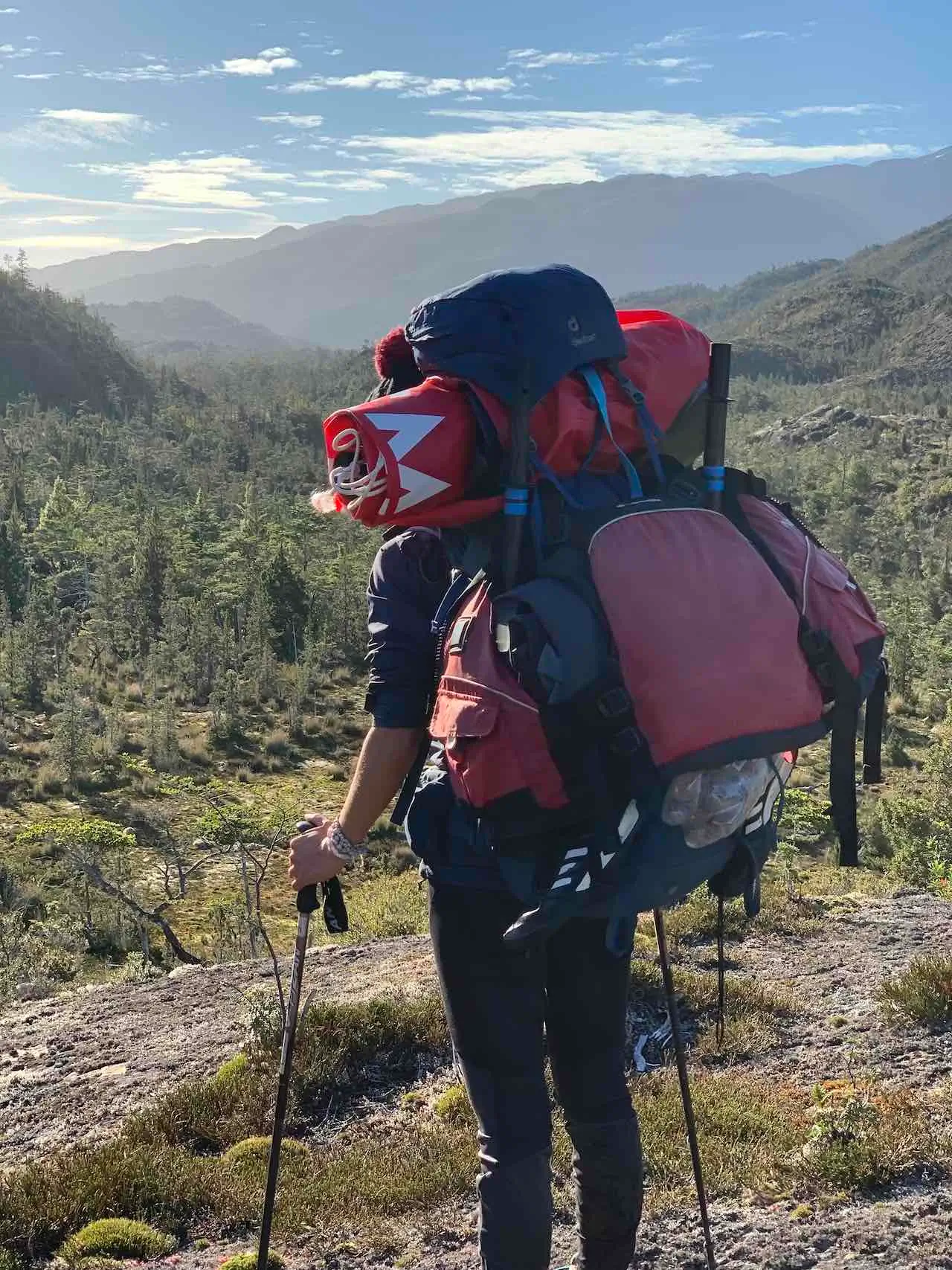
The packraft pairs very well with hiking. It gives explorers the opportunity to reach remote and hard-to-access destinations by navigating waterways and walking along trails.
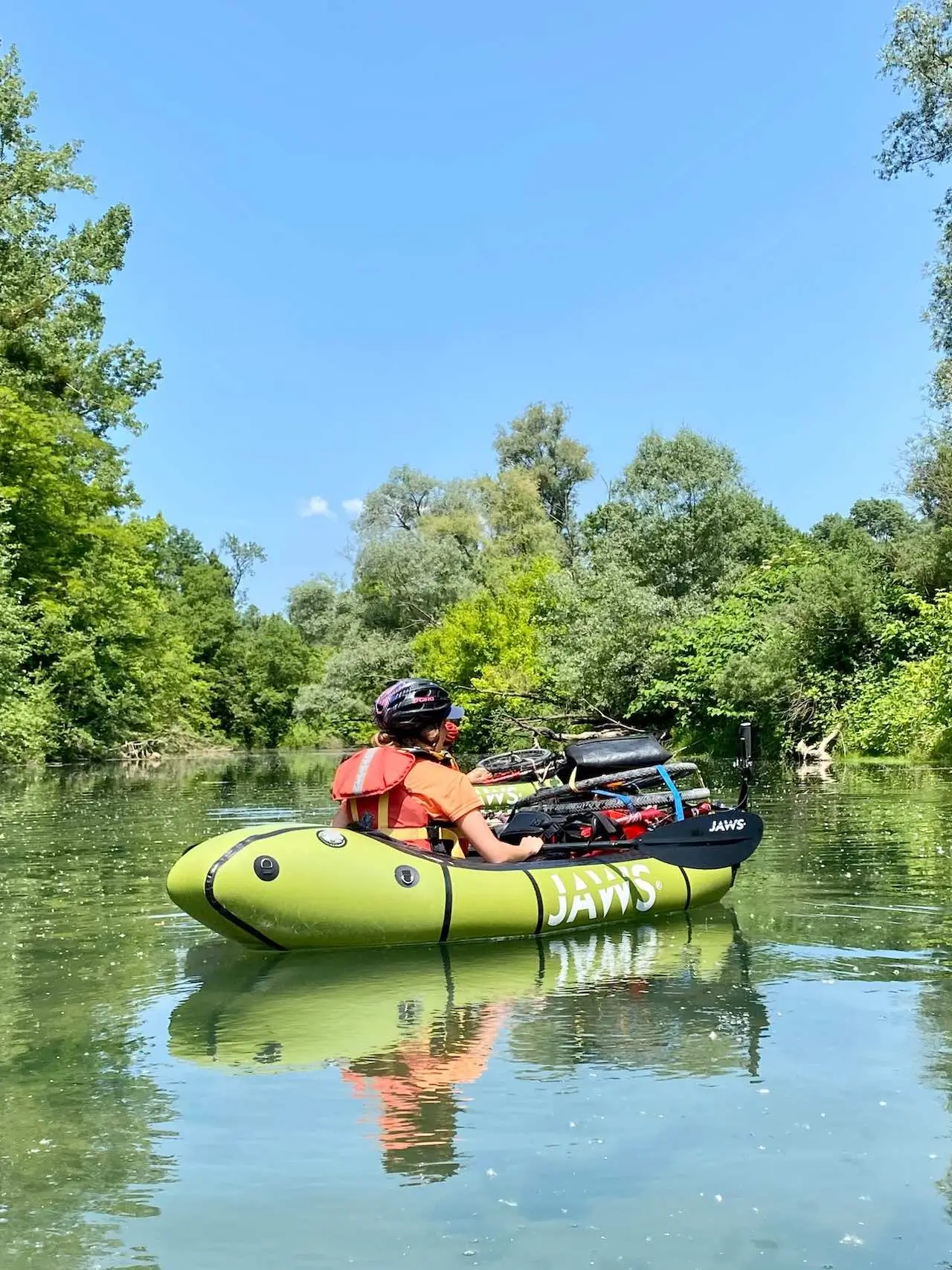
Bike rafting, or MTB-packrafting, combines cycling with packrafting to create a unique multisport adventure. It allows adventurers to embark on a journey, exploring varied terrains, both on land and water, all within the same excursion.
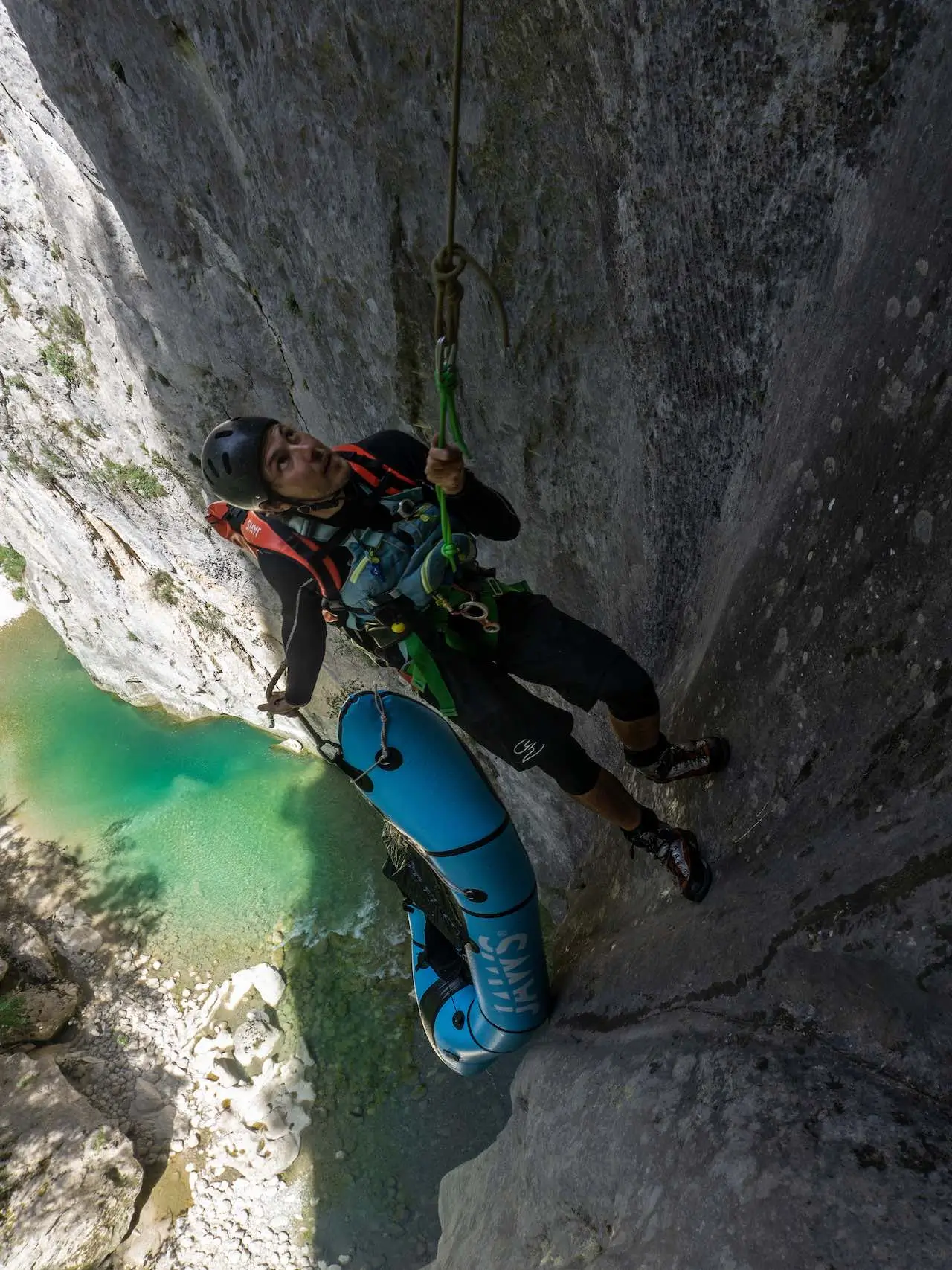
For canyoning enthusiasts, the packraft offers an interesting option to explore narrow gorges and canyons or confined waterways, allowing navigation through sections that are inaccessible by foot.
The packraft stands out from the canoe-kayak due to its increased portability, adaptability to a variety of aquatic terrains, and stability thanks to its inflatable design.
Weighing only 3 to 5 kg on average and able to fold into a backpack, the packraft is easily portable, providing adventurers with easy access to remote locations. Its versatility allows it to navigate through turbulent rivers, calm lakes, and coastal waters, offering an agile exploration experience accessible to all skill levels.
In comparison, while the canoe-kayak may offer better speed and glide, it can be less practical in terms of transport and less stable, especially for beginners.
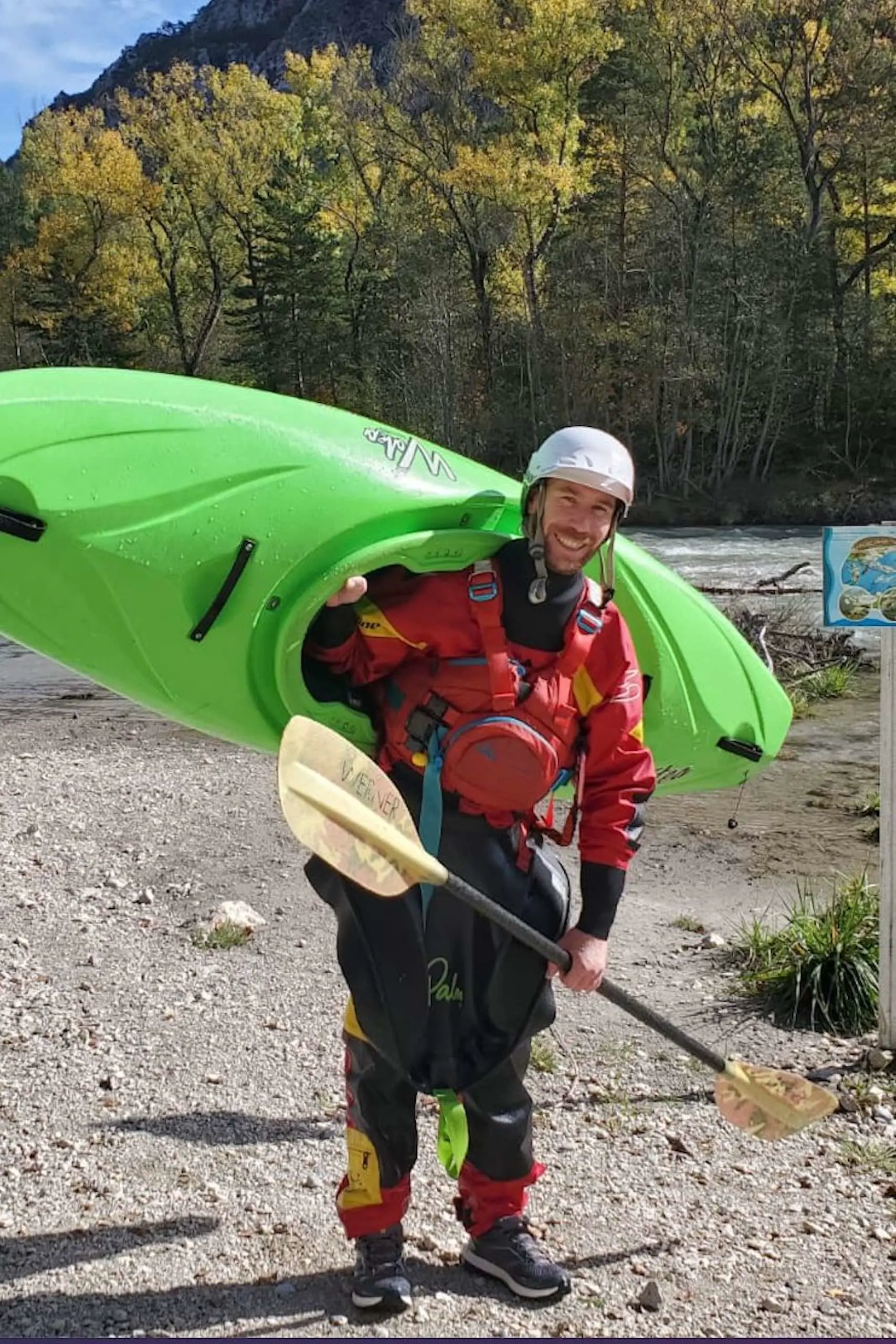
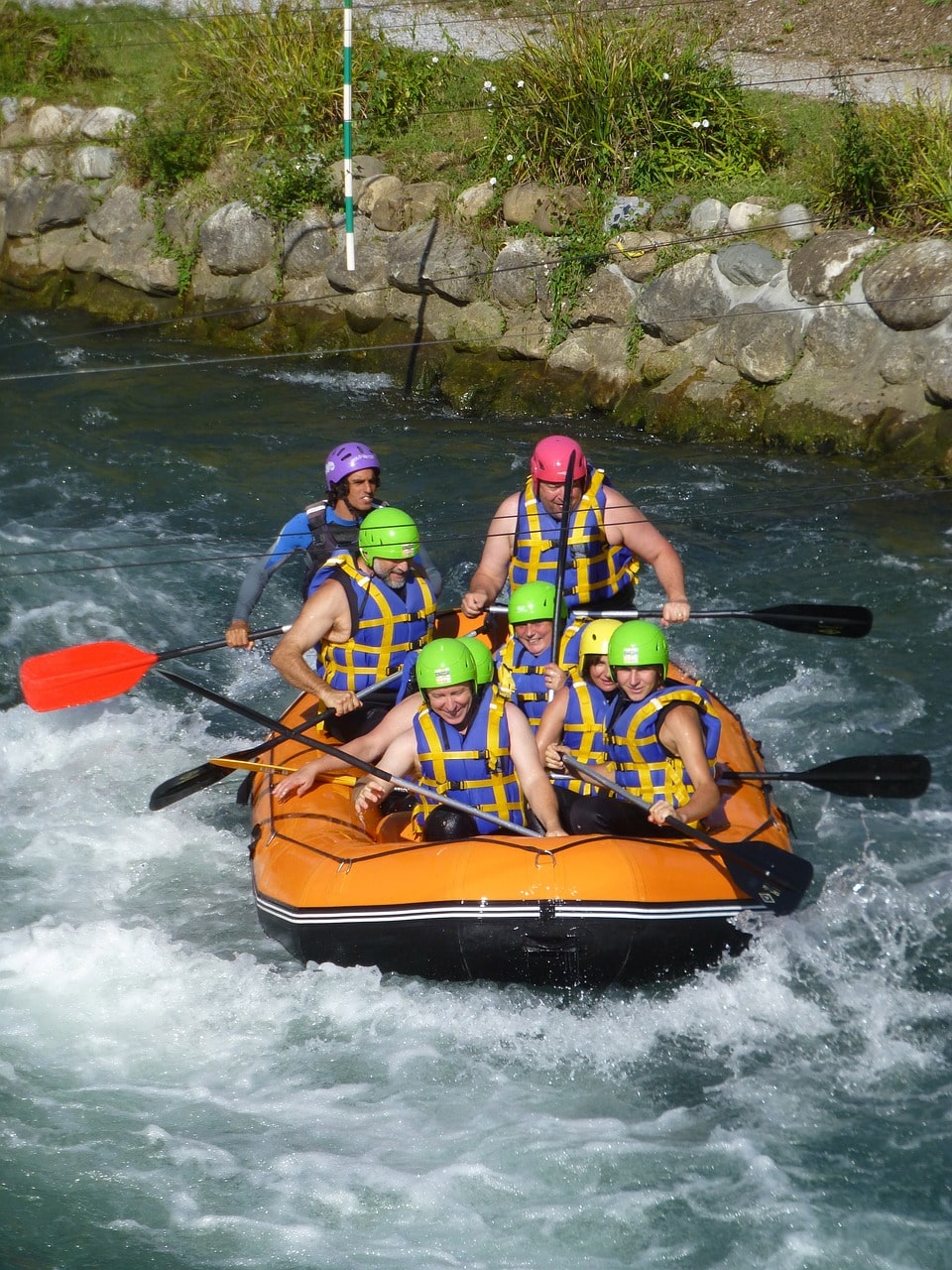
The packraft can be used solo or in pairs with single or double craft, offering maximum flexibility for adventurers.
In contrast, rafting requires group participation, typically consisting of at least four people, and requires boats weighing a minimum of 50 to 60 kg, compared to 3 kg for a packraft, making transportation and logistics more cumbersome.
Unlike the packraft, rafting often limits spontaneous adventure possibilities due to its weight and specific nature. Additionally, rafting is primarily practiced in whitewater rivers, excluding options for calm water navigation.
The packraft and the paddle, while both used on water, have significant differences in terms of design, use, and functionality.
The packraft stands out for its ability to navigate in a boat across a wider range of aquatic terrains, from turbulent rivers to isolated lakes, thanks to its robust inflatable design and enhanced stability.
In contrast, the paddle is primarily used on calm waters such as lakes, ponds, or peaceful coastal areas, offering an experience that is often more leisure and relaxation-focused.
Additionally, the packraft offers superior portability, folding easily into a backpack for spontaneous exploration, while the paddle can weigh up to 20kg. It is also bulkier, requiring more extensive logistical preparation.
